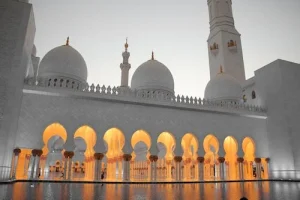Islam and Modernity: A Tapestry Woven Between Tradition and Transformation
Across the vast canvas of time, Islam and modernity have engaged in a dynamic dance, a continuous interplay of tradition and transformation. From the bustling streets of Cairo to the quiet mosques of Tokyo, Muslims grapple with the complexities of embracing new technologies, social changes, and philosophical currents while anchoring themselves in the timeless values of their faith.
“We created man from a clinging clot, then a clinging mass, then organized bones, then clothed them with flesh, then produced them as creations diverse.”[Quran_22:5]
Embrace and Encounter: Navigating the Modern Landscape
Modernity, with its emphasis on individualism, scientific inquiry, and rapid technological advancements, often presents itself as a stark contrast to the traditional foundations of Islam. Yet, Muslims throughout history have demonstrated a remarkable ability to engage with new ideas and adapt to changing circumstances. From the early translations of Greek philosophical texts during the Islamic Golden Age to the contemporary advancements in Islamic finance and medicine, Muslims have embraced innovation while ensuring it aligns with their core values.
Al-Zahrawi (980-1037 CE): Often referred to as the “father of surgery” , he wrote comprehensive medical texts detailing various surgical procedures, including instruments, techniques, and wound care. His “Kitab al-Tasrif” (The Book of Medicine) was translated into Latin and widely used in Europe for centuries.
Challenges and Concerns: Bridging the Gaps
However, navigating the modern landscape isn’t without its challenges. Concerns regarding secularism, religious freedom, and the interpretation of traditional texts in the context of modern realities spark lively debates and discussions within Muslim communities. Issues like women’s rights, family structures, and the role of technology in religious practice create opportunities for reinterpretation and adaptation, while also raising concerns about potential clashes with established norms.
A Spectrum of Responses: Diversity within Unity
The Muslim response to modernity is far from monolithic. A spectrum of viewpoints exists, ranging from complete rejection of modern values to enthusiastic embrace. Some emphasize strict adherence to tradition, fearing deviation from established norms. Others advocate for progressive interpretations, seeking to harmonize faith with contemporary realities. This diversity reflects the richness and dynamism of Islamic thought, and fosters ongoing dialogue and debate within the Muslim world.
Reconciling Faith and Progress: Finding Common Ground
Despite the challenges, a common thread connects Muslims grappling with modernity – the desire to reconcile their faith with progress. This search for harmony manifests in diverse ways:
- Ijtihad: The practice of independent reasoning and interpretation of religious texts allows for adapting legal rulings to evolving contexts.
- Renewal Movements: Movements advocating for reinterpretation of religious texts and practices to address contemporary challenges.
- Modern Islamic Scholarship: Engaging with modern disciplines like sociology, psychology, and philosophy to analyze and reframe traditional understanding.
Beyond Challenges: Opportunities for Enrichment
Modernity isn’t just a challenge; it also presents immense opportunities for enriching the practice of Islam. Access to information and education empowers individuals to deepen their understanding of their faith. Technologies facilitate global communication and collaboration, fostering greater unity and understanding among Muslims worldwide. The diverse voices within the Muslim community can contribute to enriching broader societal discourse on topics like ethics, social justice, and environmental stewardship.
Looking Ahead: A Tapestry of Continuous Weaving
The relationship between Islam and modernity is a dynamic and ongoing process. Challenges remain, but so do opportunities for growth and adaptation. As Muslims continue to navigate the complexities of the modern world, their rich tapestry of faith, woven with threads of tradition and transformation, promises to be a vibrant and influential force in shaping the future.
The secret of success is in QURAN.
Verily, in the creation of the heavens and the earth, and in the alternation of night and day, and the ships which sail through the sea with that which benefits mankind, and the water that Allah sends down from the sky and revives therewith the dead earth, and the moving creatures which He has scattered throughout the earth – in all these things are signs for a people who understand.”[Quran_39:68]
Expanding the Canvas: Further Exploration
This article offers a glimpse into the intricacies of Islam and modernity. However, much remains to be explored. Here are some avenues for further investigation:
- Specific case studies: Explore how Muslim communities in different regions are engaging with modernity.
- In-depth analysis of theological debates: Delve deeper into discussions on ijtihad, hermeneutics, and the interpretation of sacred texts.
- The role of women and youth: Investigate how their voices and perspectives shape the conversation on Islam and modernity.
- Interfaith dialogue: Explore how Muslims engage with other religious communities in the modern world.
“Seeking knowledge is an obligation upon every Muslim, male and female.”[Sunan Tirmidhi]
By embarking on these journeys of exploration, we can gain a deeper appreciation for the richness and complexity of Islam’s encounter with modernity, and how this dynamic relationship continues to shape the world we live in.
